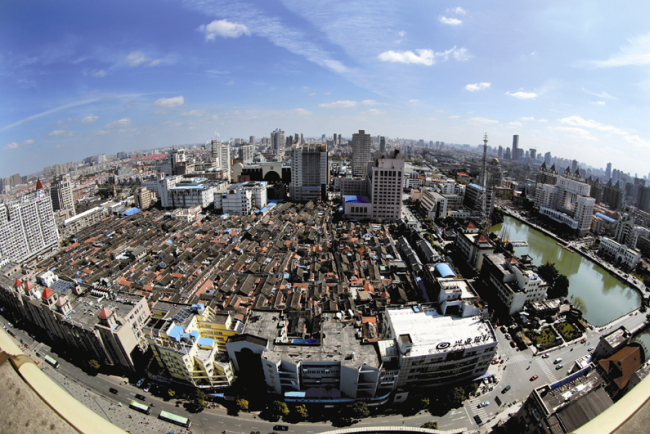Editor’s note: In 2014, Nantong, in Jiangsu province, made noticeable social and economic progress. The Nantong Report will introduce those achievements and update the changes regularly. In this edition, we look at the city’s efforts in Party construction.

? The Communist Party Committee of Nantong city strictly followed the “eight rules” issued by its central committee, which urged Party members to improve their work style and maintain close ties with the masses.
In January 2014, the city’s Party committee and government launched a themed activity that intended to care for needy groups.
About 37 million yuan ($5.9 million), which was cut from government expenses, was distributed to more than 37,000 impoverished urban and rural households in Nantong as subsidies.
? In February 2014, the city’s Party committee initiated an educational campaign aimed at promoting the Party’s working method of focusing on the masses.
The event’s results were praised by the public as well as Lu Hao, head of the touring supervision team established by the Party’s Central Committee, and Hong Qiang, secretary of the discipline inspection commission of the Party’s Jiangsu Committee.
The city launched special projects to address problems among Party members related to formalism, bureaucracy, hedonism and extravagance. The efforts achieved notable results.
Altogether 305 above-quota official business vehicles were disposed of. About 126,980 square meters of excessive government office areas were cleared. Seven government-building projects were halted.
Official business trips involving about 350 personnel in 103 groups from government departments or State-owned enterprises were cancelled.
The city saved 129.8 million yuan by cutting down on public expenses last year.
Requirements for government approvals relating to more than 1,700 matters were abolished or simplified.
About 270 government officials involved in 240 cases related to land requisition and demolition, work safety, food and medicine security, environmental protection and other problems harming the interests of the public were investigated and sanctioned.
Last year the city canceled 208 fees and penalties. It investigated and remedied 194 cases, which involved 185 people, related to unreasonable charging, fines and requisitions of donations.
? In March 2014, Nantong’s Party committee released a document on building Nantong into a demonstrative zone for honest and upright Party cadres and government, as well as a clear political environment. The document included 166 detailed objectives.
The city committee aimed to form a “new normal” for discipline among Party members. It was determined to seriously treat cases where the “eight rules” were broken.
To maintain efforts to wipe out corruption, the city carried out a series of campaigns. These included a month-long education project on construction of a clean government.
By establishing a multi-level and categorized punishment and prevention system for corruption, Nantong won first prize in a province-wide assessment for credit system construction.
The city reinforced its investigation and handling of cases involving breaking of Party disciplines and state rules.
In the past year, the city’s Party discipline inspection department put on record 1,167 cases.
A total of 1,146 people were given punishments by discipline departments of the Party committee or government. Among them, 73 were handed over to judicial organizations for suspected crimes.
? To celebrate the 60th anniversary of the National People’s Congress system, Nantong’s Party committee issued a guideline to further improve the work of the city-level People’s Congress in November.
The guideline aimed to push the system to advance with the times and encouraged the congress to explore local legislation and reinforce democratic supervision.
? In November, the city’s Party committee also issued a guideline to further improve the work of the Chinese People’s Political Consultative Conference.
The guideline encouraged the local CPPCC body to perform its functions of political consultation, democratic supervision, participation in administration and discussion of State affairs to ensure wider and more effective democracy.
Contact the writer at dingcongrong @chinadaily.com.cn
